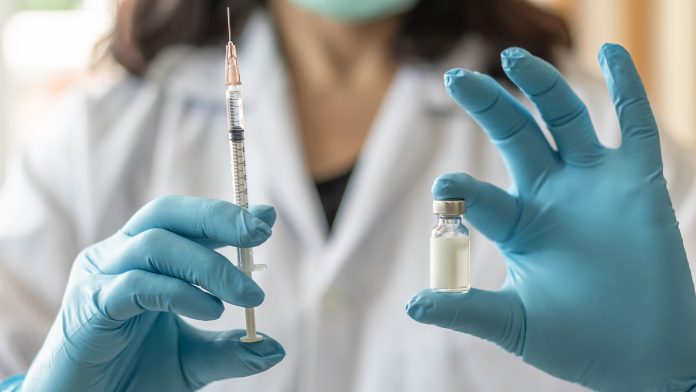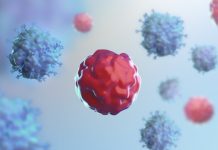
An mRNA cancer vaccine, developed by Moderna and Merck, demonstrated a statistically significant and clinically meaningful reduction in risk of disease recurrence or death.
The new results are the first demonstration for efficacy for an investigational mRNA cancer vaccine in a randomised clinical trial. It showed that compared to KEYTRUDA monotherapy in stage three and four melanoma patients with high-risk recurrence following complete resection, the mRNA-4157/V940, in combination with KEYTRUDA, was statistically significant and clinically meaningful in disease recurrence or death.
The companies now plan to discuss the results with regulatory authorities and initiate a Phase 3 study in melanoma in 2023 and expand to additional tumour types.
Exciting results from Moderna and Merck
The phase 2b KEYNOTE-942/mRNA4157-P201 trial of mRNA-4157/V940 was tested in combination with KEYTRUDA, Merck’s anti-PD-1 therapy, and showed that the risk of recurrence or death by 44% compared with KEYTRUDA alone.
“Today’s results are highly encouraging for the field of cancer treatment. mRNA has been transformative for COVID-19, and now, for the first time ever, we have demonstrated the potential for mRNA to have an impact on outcomes in a randomised clinical trial in melanoma,” said Stéphane Bancel, Moderna’s Chief Executive Officer. “We will begin additional studies in melanoma and other forms of cancer with the goal of bringing truly individualised cancer treatments to patients. We look forward to publishing the full data set and sharing the results at an upcoming oncology medical conference, as well as with health authorities.”
“These positive findings represent an important milestone in our collaboration with Moderna,” said Dr. Dean Y. Li, president, Merck Research Laboratories. “Over the last six years, our teams have worked closely together combining our respective expertise in mRNA and immuno-oncology with a focus on improving outcomes for patients with cancer. We look forward to advancing this program into the next phase of development.”
“The results of this randomised Phase 2b trial are exciting for the field. These data provide the first evidence that we can improve on the rates of recurrence-free survival achieved by PD-1 blockade in resected high-risk melanoma. These findings also provide the first randomised evidence that a personalized neoantigen approach may be beneficial in melanoma,” said Jeffrey S. Weber, MD, PhD, principal investigator of the study and Deputy Director of the Perlmutter Cancer Center at NYU Langone. DrWeber is a paid consultant for Merck and Moderna.
What is a personalised mRNA cancer vaccine?
Personalised mRNA cancer vaccines are designed to prime the immune system so the patient can create a tailored antitumour response specific to their tumour mutation signature. The new mRNA cancer vaccine is designed to stimulate an immune response by generating specific T cell responses based on the unique mutational signature of a patient’s tumour.
KEYTRUDA is an immunotherapy that works by increasing the ability of the body’s immune system to help detect and fight tumour cells.








